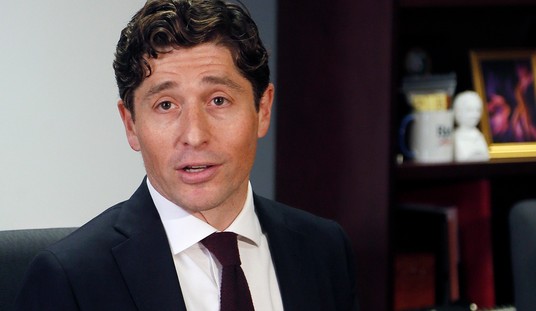Is it just me, or did someone misread the calendar over the last 24 hours? This is the third story today that normally would get the Friday-night-document-dump treatment. Instead, the Washington Post runs this right before the last major news cycle of the holiday season — and just hours before Barack Obama’s final press conference of 2013:
From the moment the government’s massive database of citizens’ call records was exposed this year, U.S. officials have clung to two main lines of defense: The secret surveillance program was constitutional and critical to keeping the nation safe.
But six months into the controversy triggered by former NSA contractor Edward Snowden, the viability of those claims is no longer clear.
In a three-day span, those rationales were upended by a federal judge who declared that the program was probably unconstitutional and the release of a report by a White House panel utterly unconvinced that stockpiling such data had played any meaningful role in preventing terrorist attacks. …
A day after the panel’s report was made public, U.S. officials said its findings had stunned senior officials at the White House as well as at U.S. intelligence services, prompting a scramble to assess the potential effect of its proposals as well as to calculate its political fallout.
“Unraveling” is putting it mildly. Obama administration officials have said all year that these programs not only provided NSA critical data for preventing terrorist attacks, but had actually stopped terrorist attacks in progress. However, when the panel demanded to see the evidence of such outcomes, they got a big and unpleasant surprise:
A member of the White House review panel on NSA surveillance said he was “absolutely” surprised when he discovered the agency’s lack of evidence that the bulk collection of telephone call records had thwarted any terrorist attacks.
“It was, ‘Huh, hello? What are we doing here?’” said Geoffrey Stone, a University of Chicago law professor, in an interview with NBC News. “The results were very thin.”
While Stone said the mass collection of telephone call records was a “logical program” from the NSA’s perspective, one question the White House panel was seeking to answer was whether it had actually stopped “any [terror attacks] that might have been really big.”
“We found none,” said Stone.
The White House, and especially DNI James Clapper and NSA chief Keith Alexander, have repeatedly insisted — in Congressional testimony — that the so-called 215 program that covers the collection of domestic phone records saved lives. Jay Carney insisted in June that the White House calculated 50 specific threats that the 215 program stopped:
White House press secretary Jay Carney repeatedly described the NSA’s bulk collection of phone records as an “important tool” in efforts to disrupt terrorist plots during a lengthy briefing Thursday afternoon, but sparred with reporters over the White House response to the intel review panel’s assertion that didn’t prevent a terrorist attack. President Obama, Carney said, stands by his June assertion that “we’ve saved lives. We know of at least 50 threats that have been averted because of this information, so lives have been saved,” thanks to the 215 program. But pressed on how that stance squares this week’s report, Carney wouldn’t directly push back against the findings that question the controversial program’s essentialness, only repeatedly calling the program “important.”
Instead, the panel found that the 702 programs that surveil foreign communications were critical in stopping terrorist attacks. The 215 program? Er, not so much:
The comparison between 702 overseas interceptions and 215 bulk metadata collection was “night and day,” said Stone. “With 702, the record is very impressive. It’s no doubt the nation is safer and spared potential attacks because of 702. There was nothing like that for 215. We asked the question and they [the NSA] gave us the data. They were very straight about it.”
How does Congress feel about this surprise? Surprised:
“That was stunning. That was the ballgame,” said one congressional intelligence official, who asked not to be publicly identified. “It flies in the face of everything that they have tossed at us.”
Once again, we have to wonder why the people doing the tossing are still around. Alexander is retiring shortly, so firing him is pointless. But why is Obama keeping James Clapper around? Better yet, will Congress take steps to force Clapper to be accountable for his obstruction of their legitimate oversight duties and perjury before Congress?
And an even better question: will anyone in the press corps ask Obama about the dishonest justifications made before Congress for this activity in today’s presser?








Join the conversation as a VIP Member